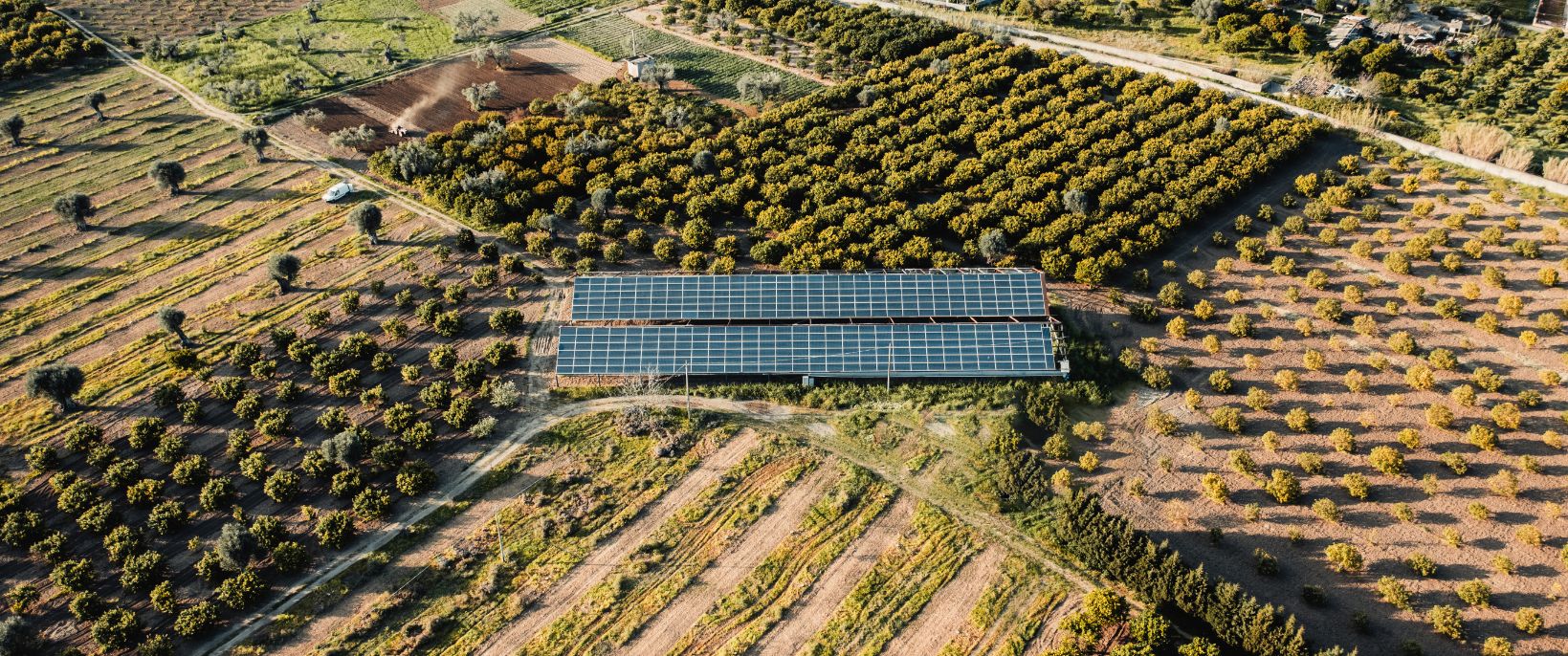Solar energy offers a sustainable and clean alternative to traditional power sources, allowing communities to become more self-reliant, economically resilient, and environmentally conscious. By harnessing the power of the sun, communities can generate their own electricity, reduce reliance on external energy sources, and contribute to the global transition towards a greener future. Solar energy empowers communities through economic growth, job creation, improved access to energy, and a sense of ownership over their energy choices. With solar power, communities can pave the way for a sustainable and empowered future.
Harnessing the Sun’s Power
As the world grapples with the challenges posed by climate change and the need to transition towards sustainable energy sources, one solution stands tall, both literally and metaphorically: harnessing the sun’s power through solar energy. The rise of solar power has been remarkable, transforming communities around the globe and empowering them in numerous ways. In this section, we will explore how solar energy is revolutionizing the lives of individuals, enhancing community resilience, and fostering a greener future.
Economic Empowerment:
Solar energy is a game-changer when it comes to economic empowerment at the community level. By embracing solar power, communities can tap into a clean and abundant source of energy, reducing their dependence on expensive fossil fuels and unstable energy markets. Installing solar panels on rooftops or setting up solar farms creates local job opportunities, ranging from manufacturing and installation to maintenance and system management. These jobs not only boost local economies but also provide avenues for skill development and entrepreneurship. Moreover, solar energy offers cost savings for households, businesses, and public institutions, freeing up financial resources that can be redirected toward other community development projects or initiatives.
Energy Independence:
One of the most significant advantages of solar energy is the potential for communities to achieve energy independence. Traditional energy sources, such as coal or natural gas, often require long-distance transportation and centralized distribution, leaving communities vulnerable to disruptions and price fluctuations. In contrast, solar power can be harnessed right where it is needed, on rooftops or local solar installations, reducing the reliance on external energy sources. This localized approach improves energy security and resilience, especially in remote or marginalized areas that are often underserved by the conventional grid infrastructure. By generating their own electricity, communities gain control over their energy future and can continue to thrive even during power outages or emergencies.
Environmental Stewardship:
Solar energy is a key driver in fostering environmental stewardship within communities. By utilizing the sun’s power, communities can significantly reduce their carbon footprint and mitigate the harmful effects of climate change. Solar power generates clean, renewable electricity without producing greenhouse gas emissions, air pollution, or hazardous waste. This sustainable energy choice not only improves air quality and public health but also safeguards local ecosystems. Communities embracing solar energy contribute to a global transition towards a low-carbon future, demonstrating their commitment to environmental sustainability and inspiring others to follow suit. Additionally, solar energy systems can be integrated with energy storage technologies, enabling communities to store excess energy and use it during peak demand periods, further optimizing resource utilization and reducing strain on the grid.
The widespread adoption of solar energy is empowering communities in multiple ways. By embracing solar power, communities can experience economic empowerment through job creation and cost savings, achieve energy independence by reducing dependence on external energy sources, and contribute to environmental stewardship by reducing carbon emissions and promoting sustainable practices. As solar technology continues to advance and become more accessible, communities have the opportunity to harness the sun’s power and shape a brighter, greener future for generations to come.
Energizing Communities: The Role of Solar Power in Empowerment
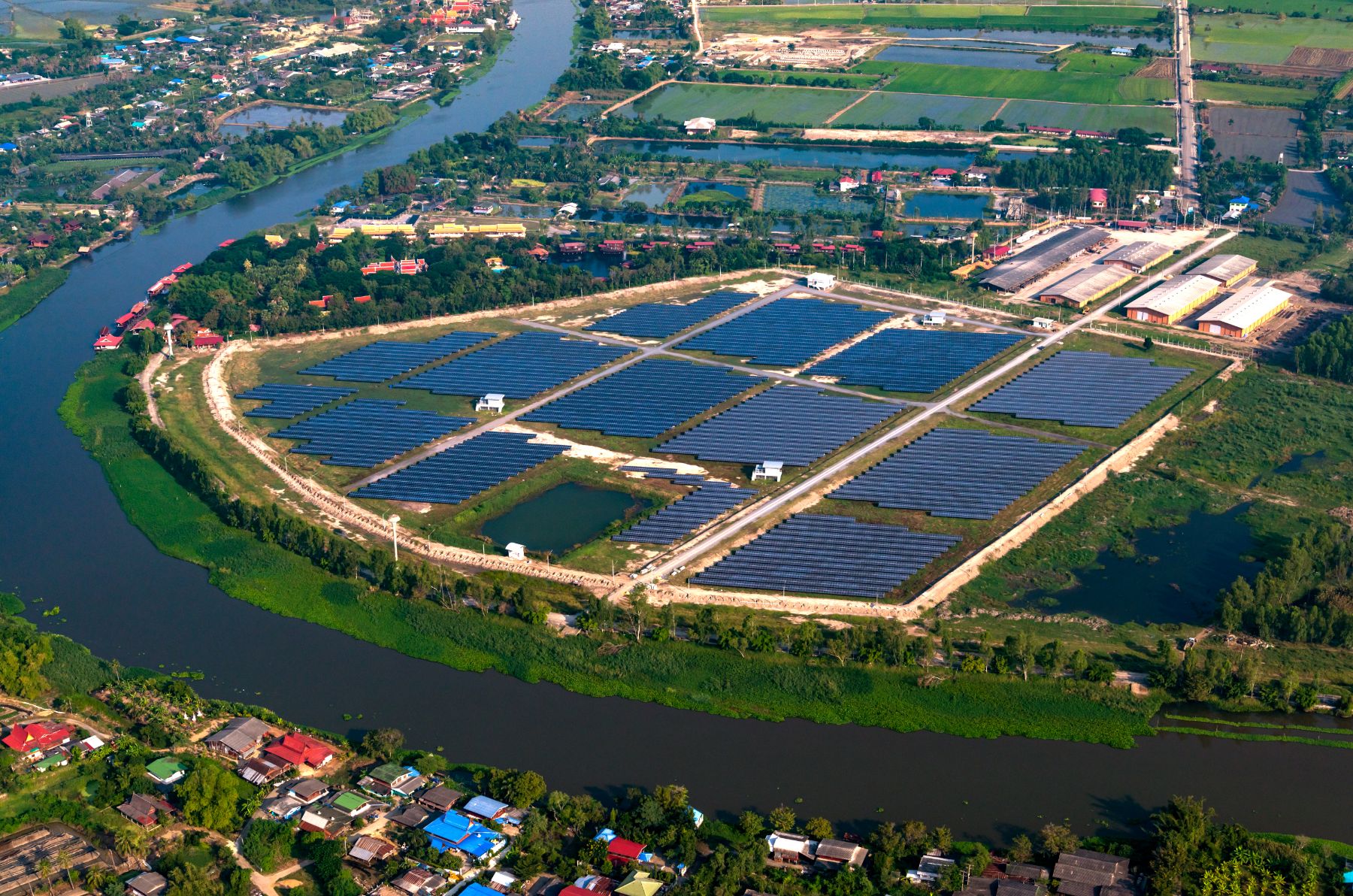
Solar power has emerged as a forceful catalyst for community empowerment, revolutionizing the way we generate and consume energy. In this section, we will delve deeper into the role of solar power in energizing communities and the transformative effects it has on individuals, neighborhoods, and even entire regions. From promoting social equity to fostering resilience, solar energy is illuminating the path to a brighter future for communities worldwide.
Social Equity:
Solar power is breaking down barriers and promoting social equity by providing access to clean, affordable energy for all. Historically, marginalized communities, particularly those in low-income areas, have faced challenges in accessing reliable and affordable electricity. Solar energy is changing this narrative by offering decentralized power generation options. Community solar projects, for example, allow multiple households to benefit from a shared solar installation, even if they cannot install panels on their own roofs. This approach ensures that everyone, regardless of income or homeownership status, can enjoy the advantages of solar energy. By prioritizing equity in solar initiatives, communities can bridge the energy gap, empowering individuals and fostering social inclusion.
Educational Opportunities:
Solar energy presents unique educational opportunities that empower communities to develop knowledge and skills in sustainable practices. Installing solar panels in schools and educational institutions not only reduces energy costs but also serves as a powerful teaching tool. Students can learn about renewable energy sources, energy conservation, and the science behind solar power. Moreover, solar energy systems can be integrated into STEM (science, technology, engineering, and mathematics) curricula, inspiring the next generation of innovators and environmental stewards. By incorporating solar energy education into community programs and initiatives, communities can empower individuals with the knowledge and skills necessary to embrace clean energy technologies and become active participants in the renewable energy transition.
Resilience and Emergency Preparedness:
Solar power plays a crucial role in enhancing community resilience and preparedness, particularly in the face of natural disasters and emergencies. Traditional energy grids are susceptible to disruptions, leaving communities vulnerable during power outages. However, solar energy systems, when coupled with energy storage solutions like batteries, provide a decentralized and reliable source of electricity. During emergencies, solar-powered microgrids can continue to supply energy to critical facilities such as hospitals, emergency shelters, and communication centers. Solar-powered charging stations can also offer a lifeline for community members to charge their essential devices and stay connected during challenging times. By integrating solar energy into emergency preparedness plans, communities can bolster their resilience and ensure that power is readily available when it is needed most.
Solar power serves as a dynamic force in energizing communities and driving empowerment. Through its promotion of social equity, educational opportunities, and resilience, solar energy empowers individuals and strengthens community bonds. By embracing the transformative power of the sun, communities can illuminate their path toward a sustainable and inclusive future.
Fostering Sustainable Development

Solar energy is more than just a renewable power source; it is a catalyst for sustainable development within communities. In this section, we will explore how solar energy fosters sustainable development by promoting economic growth, environmental stewardship, and social well-being. From creating green jobs to reducing carbon emissions, solar power is propelling communities toward a future that is both prosperous and sustainable.
Green Job Creation:
The solar industry is a major contributor to job creation and economic growth within communities. As solar installations increase, so does the demand for skilled workers in various fields such as engineering, manufacturing, installation, and maintenance. Local job opportunities are created, stimulating the local economy and reducing unemployment rates. Moreover, solar energy projects often require collaboration with other sectors, such as construction and technology, fostering cross-sector partnerships and driving economic diversification. By embracing solar power, communities can tap into a growing industry and build a workforce that is equipped with the skills needed for the clean energy transition.
Environmental Conservation:
Solar energy is a vital component of sustainable development, as it significantly reduces greenhouse gas emissions and helps combat climate change. Traditional energy sources like coal and gas contribute to air pollution and carbon emissions, endangering both human health and the environment. Solar power generates electricity without emitting harmful pollutants, ensuring cleaner air and a healthier environment for communities. By transitioning to solar energy, communities can reduce their carbon footprint and contribute to global efforts to mitigate climate change. In addition, solar installations can be integrated with other sustainable practices, such as rainwater harvesting and energy-efficient building design, further enhancing environmental conservation and resource management.
Improved Quality of Life:
Solar energy positively impacts social well-being by improving the quality of life for individuals within communities. Solar-powered electricity brings reliable and affordable energy to homes, schools, and healthcare facilities, enhancing access to essential services. In areas where access to electricity is limited, solar power can provide lighting for safe streets, allowing communities to thrive after sunset. Moreover, solar energy offers financial savings for households, freeing up resources that can be allocated towards education, healthcare, or other critical needs. By reducing energy costs, solar power helps alleviate the energy burden on low-income households, promoting energy equity and social inclusion.
Solar energy serves as a catalyst for sustainable development within communities, fostering economic growth, environmental conservation, and social well-being. By embracing solar power, communities can create green jobs, reduce carbon emissions, and improve the quality of life for individuals. As we strive for a sustainable future, solar energy emerges as a key enabler of progress, empowering communities to thrive while preserving our planet for generations to come.
Transforming Communities One Panel at a Time
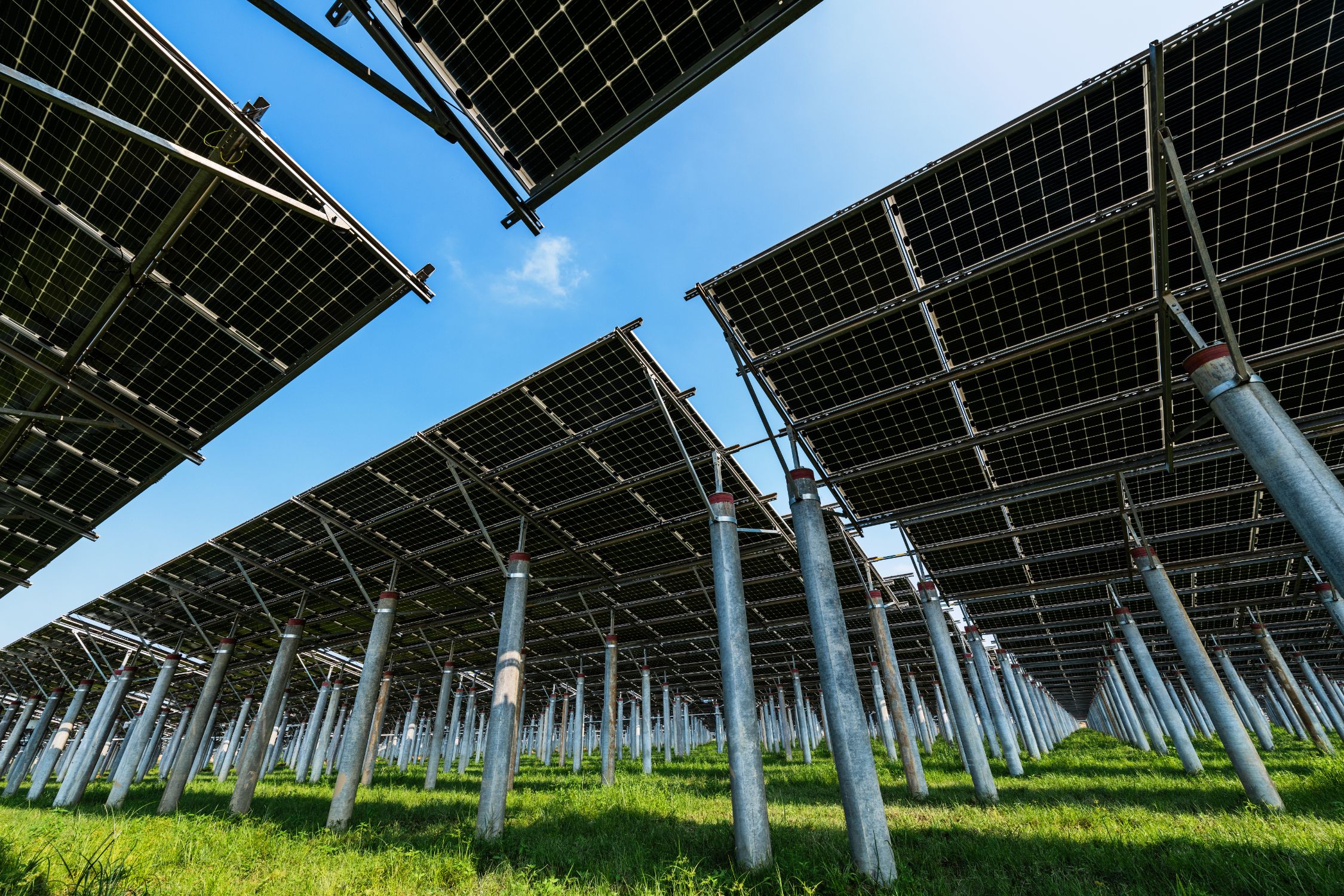
The power of solar energy lies not only in its ability to generate electricity but also in its transformative impact on communities. With each solar panel installation, communities are embarking on a journey of empowerment, resilience, and sustainability. In this section, we will explore how solar energy is transforming communities, one panel at a time, and shaping a future that is powered by renewable resources.
Empowering Energy Independence:
Solar energy empowers communities to take control of their energy future and become more self-reliant. By harnessing the sun’s power, communities can generate electricity locally, reducing their dependence on centralized energy grids and external energy sources. This newfound energy independence brings numerous benefits, including increased resilience during power outages and reduced vulnerability to energy price fluctuations. Moreover, solar power allows communities in remote or underserved areas to access clean and reliable electricity, bridging the energy gap and enabling economic and social development. With solar panels adorning rooftops and solar farms dotting the landscape, communities are empowered to shape their energy destiny and create a sustainable future.
Catalyzing Community Engagement:
Solar energy installations have the remarkable ability to unite and engage communities in a shared vision of sustainability. From the planning stage to the implementation and maintenance of solar projects, community engagement plays a crucial role. Community-led solar initiatives, such as cooperatives or shared solar programs, encourage active participation from residents, businesses, and local organizations. This collective effort not only fosters a sense of ownership but also builds social cohesion and strengthens community ties. Solar energy becomes a conversation starter, a catalyst for dialogue and collaboration, as individuals come together to shape the energy landscape of their community. Through this engagement, communities are not only empowered but also inspired to embrace other sustainable practices and initiatives.
Environmental Stewardship and Inspiration:
Solar energy is an embodiment of environmental stewardship, inspiring communities to adopt sustainable practices and reduce their carbon footprint. By generating clean, renewable electricity, communities can significantly reduce greenhouse gas emissions and mitigate the impacts of climate change. Solar installations serve as visible symbols of environmental responsibility, inspiring individuals to embrace a greener lifestyle. The presence of solar panels in homes, schools, and public buildings sparks curiosity and encourages others to explore the benefits of solar energy. This ripple effect of inspiration extends beyond the initial installation, as more and more communities become motivated to embark on their own renewable energy journeys. Solar power not only transforms individual communities but also sets an example for others to follow, creating a domino effect of sustainable development.
Solar energy is a transformative force, revolutionizing communities one panel at a time. By empowering energy independence, catalyzing community engagement, and inspiring environmental stewardship, solar power is reshaping the way communities generate, consume, and think about energy. As solar installations become a common sight, communities are embracing the power of the sun, forging a path towards a sustainable future that is fueled by renewable power and driven by empowered communities.
Economic Empowerment through Solar Energy

Solar energy is not only a sustainable power source but also a driving force behind economic empowerment within communities. In this section, we will explore how solar energy stimulates economic growth, fosters job creation, and generates financial benefits, propelling communities toward a brighter and more prosperous future.
Stimulating Economic Growth:
The adoption of solar energy stimulates economic growth within communities by creating new industries, attracting investments, and boosting local businesses. As solar installations increase, demand for solar-related products and services emerges, leading to the growth of manufacturing, distribution, and installation companies. Local businesses benefit from the increased demand for solar panels, inverters, batteries, and other equipment. Moreover, solar energy projects often require collaboration with other sectors, such as construction and engineering, creating synergies and generating employment opportunities. The economic ripple effect extends beyond the solar industry, as the growth in solar-related activities stimulates the overall economy of a community, attracting investors and contributing to sustainable development.
Job Creation and Skill Development:
Solar energy presents a significant opportunity for job creation and skill development within communities. The installation, operation, and maintenance of solar panels require a skilled workforce, creating employment opportunities at various levels. From solar panel manufacturing and installation to system design and maintenance, each step of the solar energy value chain generates employment. Local job creation in the solar industry stimulates the local economy and reduces unemployment rates. Moreover, solar energy projects provide avenues for skill development and vocational training, empowering individuals with the expertise needed to thrive in the clean energy sector. By embracing solar energy, communities can equip their workforce with valuable skills, ensuring sustainable job growth and economic resilience.
Financial Benefits and Cost Savings:
Solar energy offers significant financial benefits for communities, both at an individual and collective level. Installing solar panels on rooftops or setting up community solar projects allows households, businesses, and public institutions to generate their own electricity, reducing their reliance on expensive grid electricity. This, in turn, leads to substantial cost savings on energy bills, freeing up financial resources that can be invested in other community development initiatives. Additionally, solar energy systems often come with incentives and government programs that further reduce the upfront costs, making solar more affordable and accessible for communities. By embracing solar energy, communities can improve their financial well-being, redirecting savings towards education, healthcare, infrastructure, or other essential needs.
Solar energy is a powerful driver of economic empowerment within communities. By stimulating economic growth, fostering job creation, and generating financial benefits, solar power transforms communities into vibrant and prosperous hubs. As solar energy continues to advance, communities have the opportunity to harness its economic potential, paving the way for a sustainable future that is not only environmentally friendly but also economically thriving.
Energy Independence: How Solar Power Empowers Communities to Take Control

Solar power is a beacon of energy independence, empowering communities to take control of their energy future. In this section, we will explore how solar energy liberates communities from dependence on external energy sources, enhances resilience, and fosters a sense of empowerment and self-reliance.
Liberating from External Energy Sources:
Solar energy liberates communities from the constraints of traditional energy sources and the vulnerabilities associated with centralized power grids. Instead of relying on distant power plants or fossil fuels that are subject to price fluctuations and supply chain disruptions, communities can harness the power of the sun right where they are. By installing solar panels on rooftops, and community centers, or setting up solar farms, communities generate their own electricity, reducing their dependence on external energy sources. This independence not only offers more control over energy costs but also reduces exposure to the risks and uncertainties associated with traditional energy production and distribution.
Enhancing Resilience:
Solar power plays a crucial role in enhancing community resilience, particularly in the face of power outages or natural disasters. Traditional energy grids are vulnerable to disruptions, leaving communities without power during critical times. However, solar energy, when combined with energy storage solutions like batteries, provides a reliable source of electricity even when the grid goes down. Solar-powered microgrids can supply energy to critical facilities such as hospitals, emergency shelters, and communication centers, ensuring that essential services remain operational. Furthermore, solar energy systems enable communities to become more self-sufficient during emergencies, reducing the reliance on external aid and enabling faster recovery. By embracing solar power, communities enhance their ability to withstand and bounce back from unforeseen events, strengthening their overall resilience.
Empowering Self-Reliance:
Solar energy empowers communities to become self-reliant in meeting their energy needs. By generating their own electricity, communities gain a sense of control and autonomy over their energy future. This empowerment fosters a shift from passive energy consumers to active energy producers, as individuals and organizations become actively involved in the production and management of their energy systems. Furthermore, solar energy installations often go hand in hand with energy conservation and efficiency measures, empowering communities to optimize their energy consumption. Through education and engagement, communities can learn about energy-saving practices and technologies, further enhancing their self-reliance and sustainability.
In conclusion, solar energy liberates communities from external energy sources, enhances resilience, and fosters a sense of empowerment and self-reliance. By embracing solar power, communities take control of their energy future, reduce dependence on traditional energy sources, and enhance their ability to withstand disruptions. Solar energy is a key driver in empowering communities to shape their own energy destiny and build a sustainable future based on resilience and self-sufficiency.
Empowering Rural Communities: Solar Energy’s Impact on Off-Grid Areas
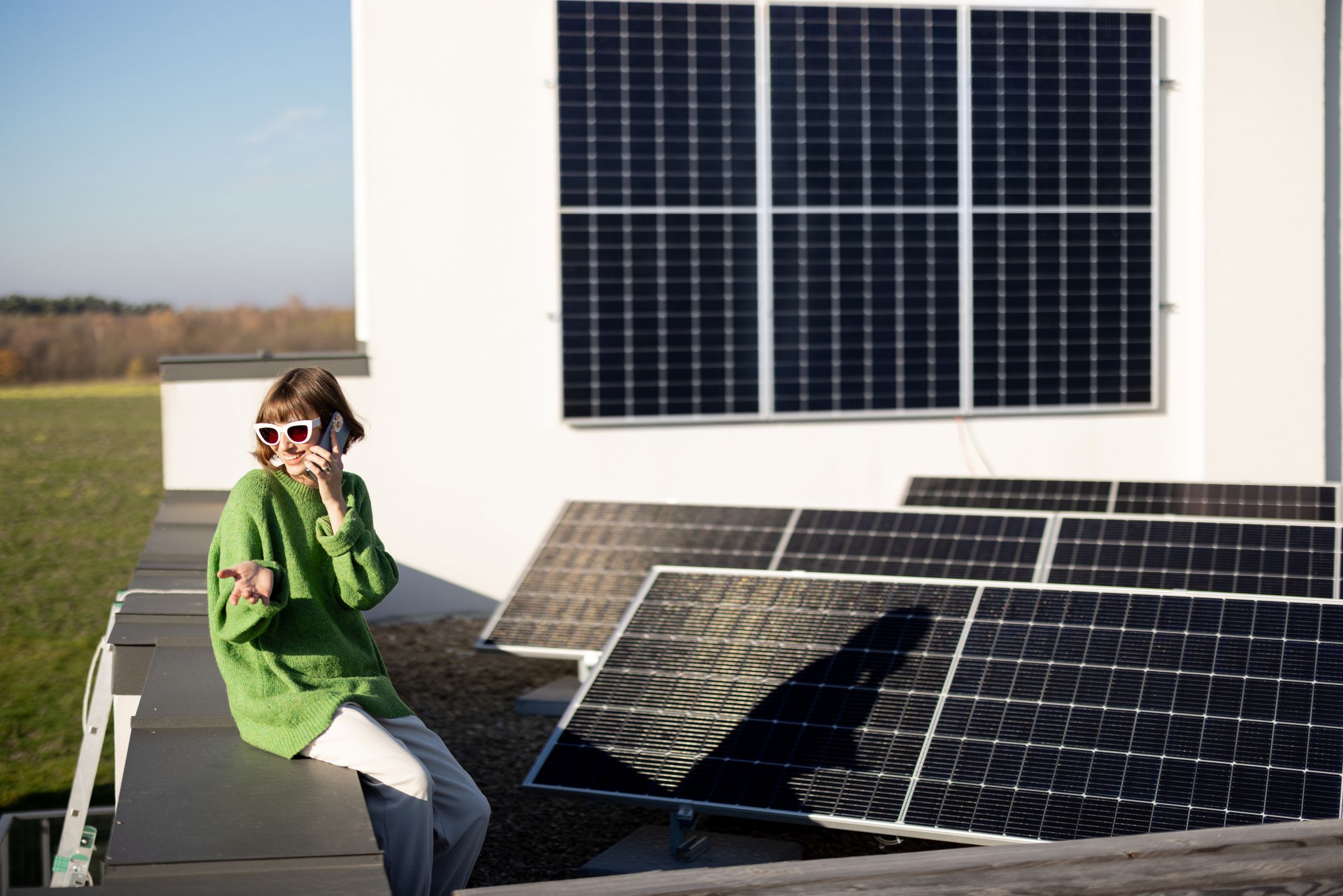
Solar energy has emerged as a transformative force, particularly for rural communities that have limited or no access to grid electricity. In this section, we will explore how solar power empowers rural communities, providing them with sustainable energy solutions, fostering development, and improving quality of life.
Sustainable Energy Solutions:
Solar energy offers a sustainable and reliable energy solution for rural communities that are off the grid or have unreliable grid connections. These communities often face challenges in accessing electricity, limiting their opportunities for growth and development. Solar power provides a decentralized energy solution, allowing households, schools, and healthcare facilities to generate their own electricity. By harnessing the power of the sun, rural communities can overcome the barriers of distance and infrastructure, gaining access to clean and reliable energy. This shift from traditional energy sources to solar power not only improves the quality of life but also enables communities to pursue economic activities, such as small-scale businesses or agricultural processing, that require a consistent and affordable energy supply.
Economic Development:
Solar energy drives economic development in rural communities by creating local job opportunities and supporting income-generating activities. Solar projects require skilled workers for installation, maintenance, and system management, creating employment opportunities within the community. Additionally, solar energy systems can power irrigation pumps, enabling farmers to increase agricultural productivity and reduce manual labor. This, in turn, contributes to increased income and economic resilience. Moreover, solar-powered microgrids can serve as platforms for community-owned businesses, such as solar-powered charging stations or community refrigeration centers. By fostering economic development, solar energy empowers rural communities to become self-sufficient and reduces the need for migration to urban areas in search of employment opportunities.
Improved Quality of Life:
Solar energy improves the quality of life for rural communities in numerous ways. Access to electricity through solar power enables lighting in homes, extending productive hours, and enhancing safety and security. It enables the use of electric appliances such as refrigerators, fans, and communication devices, improving overall comfort and connectivity. Solar-powered lighting in schools allows for evening study sessions and enhances educational opportunities for children. Moreover, solar energy systems can power healthcare facilities, ensuring access to vital medical equipment and enabling the provision of quality healthcare services. By improving access to essential services and enhancing overall well-being, solar energy empowers rural communities to thrive and create a sustainable future.
Solar energy has a profound impact on rural communities by providing sustainable energy solutions, driving economic development, and improving the quality of life. By embracing solar power, rural communities gain access to reliable electricity, create local job opportunities, and enhance their overall well-being. Solar energy enables these communities to break free from the constraints of traditional energy sources and fosters self-sufficiency and empowerment.
Education and Awareness

Education and awareness play a crucial role in empowering communities through renewable power, specifically solar energy. In this section, we will explore how education and awareness initiatives can inspire communities, foster sustainable practices, and drive the adoption of solar energy as a means of empowerment.
Inspiring Change:
Education is a powerful tool for inspiring individuals and communities to embrace solar energy and renewable power. By raising awareness about the benefits of solar energy, educational programs can empower communities to take action and make informed choices. Schools, community centers, and local organizations can play a pivotal role in promoting solar energy literacy through workshops, seminars, and awareness campaigns. By showcasing success stories, demonstrating the environmental and economic benefits, and highlighting the impact of solar energy on communities, education can ignite enthusiasm and inspire individuals to become advocates for solar power. The more people understand the advantages and potential of solar energy, the greater the momentum for change and empowerment within communities.
Promoting Sustainable Practices:
Education about solar energy extends beyond its technical aspects; it encompasses the broader concept of sustainability. Solar energy education can foster a mindset shift towards sustainable practices, encouraging communities to embrace energy conservation, energy efficiency, and eco-friendly lifestyles. Understanding the interconnectedness of energy, the environment, and social well-being, individuals can make conscious choices that reduce their carbon footprint and contribute to a more sustainable future. Through educational initiatives, communities can learn about energy-saving techniques, such as optimizing solar panel placement, adopting energy-efficient appliances, and implementing proper waste management. This holistic approach to education empowers communities to adopt sustainable practices and integrate solar energy as part of their larger commitment to environmental stewardship.
Empowering Decision-Making:
Education about solar energy empowers communities to make informed decisions about their energy future. By providing access to accurate information and resources, communities can evaluate the feasibility of solar energy projects and assess the potential benefits. Education enables individuals to understand the technical aspects of solar installations, including costs, financing options, and maintenance requirements. Armed with this knowledge, communities can make well-informed decisions about adopting solar energy systems, whether at the individual, household, or community level. Education empowers communities to take control of their energy choices, fostering a sense of ownership and self-reliance.
Education and awareness initiatives are vital in empowering communities through solar energy. By inspiring change, promoting sustainable practices, and empowering decision-making, education plays a pivotal role in driving the adoption of solar energy as a means of community empowerment. Through education, communities gain the knowledge and tools to embrace renewable power, create a sustainable future, and shape their own energy destiny.
Environmental Benefits of Solar Energy
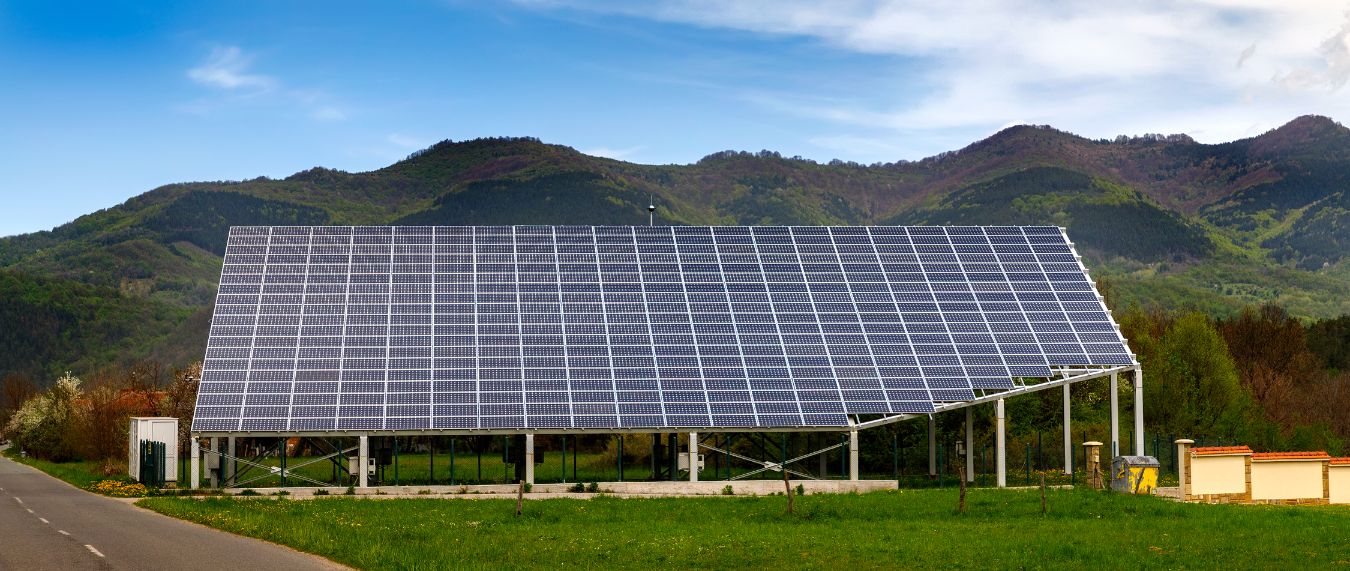
Solar energy is a game-changer for communities when it comes to environmental benefits. In this section, we will explore how solar power empowers communities by reducing carbon emissions, improving air quality, and conserving natural resources. These environmental advantages make solar energy a sustainable and responsible choice for communities seeking to make a positive impact on the planet.
Reducing Carbon Emissions:
Solar energy is a clean and renewable power source that significantly reduces carbon emissions. Traditional energy sources, such as coal and natural gas, release greenhouse gases when burned, contributing to climate change. In contrast, solar energy systems generate electricity without emitting harmful pollutants or greenhouse gases. By embracing solar power, communities can make substantial reductions in their carbon footprint, minimizing their contribution to global warming. This transition to clean energy not only benefits the local community but also supports global efforts to combat climate change. By reducing carbon emissions, solar energy empowers communities to be environmentally responsible and actively participate in the fight against climate change.
Improving Air Quality:
Solar energy plays a vital role in improving air quality and public health. Fossil fuel-based power plants release pollutants such as sulfur dioxide, nitrogen oxides, and particulate matter, which have detrimental effects on air quality and human health. Solar power, on the other hand, generates electricity without these harmful emissions, leading to cleaner and healthier air for communities. By adopting solar energy, communities can mitigate the negative impacts of air pollution, reducing respiratory issues, and improving overall well-being. The improved air quality resulting from solar energy installations creates a healthier living environment for community members, particularly for those with respiratory conditions or vulnerable populations such as children and the elderly.
Conserving Natural Resources:
Solar energy contributes to the conservation of natural resources, including water and fossil fuels. Traditional energy generation relies heavily on water for cooling and other processes, putting a strain on water resources. Solar power, on the other hand, has a minimal water footprint. Photovoltaic solar panels generate electricity directly from sunlight without the need for water-intensive processes. This reduces water consumption and helps preserve water resources, particularly in regions facing water scarcity or drought. Furthermore, by relying on the sun as a limitless energy source, solar power decreases dependence on finite fossil fuel reserves, conserving these valuable resources for future generations. By embracing solar energy, communities can contribute to the sustainable use and conservation of natural resources, promoting a greener and more sustainable future.
Solar energy brings significant environmental benefits to communities, empowering them to make a positive impact on the planet. By reducing carbon emissions, improving air quality, and conserving natural resources, solar power offers a sustainable and responsible energy choice. Embracing solar energy empowers communities to be environmentally conscious, protect public health, and contribute to a greener future.
Government Initiatives and Policies

Government initiatives and policies play a vital role in empowering communities through renewable power, particularly solar energy. In this section, we will explore how governments can drive the adoption of solar energy, incentivize renewable investments, and create an enabling environment for community empowerment.
Incentives and Subsidies:
Governments can promote the adoption of solar energy by offering incentives and subsidies to individuals, businesses, and communities. These incentives can include tax credits, grants, or low-interest financing options for the installation of solar panels and related equipment. By making solar energy more affordable and accessible, governments encourage communities to embrace clean power and invest in renewable technologies. Additionally, subsidies can be targeted toward low-income or marginalized communities, ensuring that the benefits of solar energy reach those who need it most. These initiatives empower communities by reducing the financial barriers associated with solar energy adoption, enabling them to transition to sustainable and cost-effective power sources.
Net Metering and Feed-in Tariffs:
Net metering and feed-in tariffs are policies that empower communities to generate their own electricity and even contribute excess power back to the grid. Net metering allows solar energy system owners to offset their electricity consumption by receiving credits for any excess energy they produce. This enables communities to reduce their energy bills and even earn revenue by selling surplus energy. Feed-in tariffs, on the other hand, guarantee a fixed payment rate for each unit of solar energy produced and fed into the grid. These policies provide financial incentives for communities to invest in solar energy and become active participants in the clean energy market. By encouraging the generation of renewable energy and enabling communities to benefit financially, governments empower communities to take control of their energy production and consumption.
Regulatory Framework and Streamlined Processes:
Governments can empower communities by establishing a supportive regulatory framework and streamlining processes related to solar energy installations. Clear and transparent regulations provide certainty for investors, making it easier for communities to navigate the complexities of solar energy projects. Governments can simplify permitting and approval processes, ensuring that communities face minimal administrative barriers when installing solar panels. This streamlining reduces costs and bureaucratic hurdles, making solar energy more accessible to communities. By establishing an enabling environment, governments empower communities to embrace solar energy, reduce reliance on fossil fuels, and contribute to a sustainable future.
Government initiatives and policies are instrumental in empowering communities through solar energy. By offering incentives and subsidies, implementing net metering and feed-in tariff programs, and establishing supportive regulatory frameworks, governments enable communities to embrace clean power, reduce energy costs, and contribute to a sustainable future. These initiatives empower communities to take control of their energy choices, driving the adoption of solar energy and fostering community resilience and empowerment.
If you’re looking for high-quality solar panels, we recommend checking out this website for the best options available. Whether you’re a homeowner, business owner, or part of a community initiative, this website offers a wide range of reliable and efficient solar panels to suit your needs. Take the first step towards embracing renewable power and empowering your community with solar energy.

